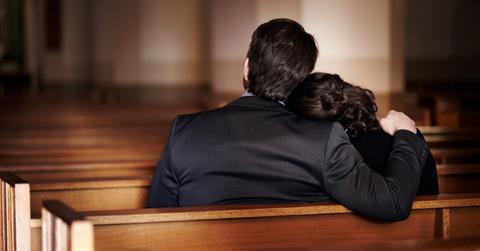How to Deduct Funeral Expenses on Your Estate Taxes
Funeral expenses add up. While it would be helpful if struggling Americans could deduct them from their taxes, it isn't always possible. Let's discuss estate taxes.
Feb. 22 2022, Published 2:44 p.m. ET

Funeral expenses add up. According to the National Funeral Directors Association, the median cost of a funeral amounts to $7,848. Funeral costs aren’t rising as fast as inflation—rising 6.6 percent in 5 years compared to nearly 14 percent during the same time period as of late 2021—but it can still be a burden for grieving families. While it would be helpful if struggling Americans could deduct funeral expenses from their taxes, that isn't always possible.
Here are the rules about funeral expenses and taxes in a time when nearly 1 million Americans have already died due to having COVID-19 as a primary or underlying condition.
Individual taxpayers can't deduct funeral expenses on income taxes.

According to the IRS, “No deduction for funeral expenses can be taken on the final Form 1040 or 1040-SR of a decedent.”
Form 1040 and form 1040-SR are income tax forms for individuals and seniors, respectively. A decedent is someone who has died.
People who are paying taxes on individual income can't deduct funeral expenses. However, qualified medical expenses incurred prior to the death in an attempt to treat an illness are tax-deductible. If any of these medical expenses were incurred before the funeral during the applicable tax year, they can be claimed on taxes.
You can deduct funeral expenses for estate tax purposes.
The IRS says about funeral expenses, “These expenses may be deductible for estate tax purposes on Form 706.”
If you used estate tax money to fund a funeral, then you can deduct funeral expenses on your estate taxes. You’ll use Form 706, United States Estate (and Generation-Skipping Transfer) Tax Return to do this.
In 2021, the federal estate tax rate ranges from 18 percent–40 percent depending on the size of the inheritance. Anyone with an estate worth at least $1,000,001 must pay the maximum—$345,800 plus 40 percent of the amount over $1,000,000. Estate administers will fill out the form and can report any funeral expenses in Schedule J, Funeral Expenses and Expenses Incurred in Administering Property Subject to Claims. Taxpayers must itemize individual funeral expenses on the form.

What to know before you deduct funeral expenses from estate taxes
Estate taxpayers must subtract any reimbursements made to the estate from their expenses. The estate may receive reimbursements if Social Security or Veterans Affairs benefits deposit in the estate’s account posthumously. In some cases, funeral costs are also reimbursed to the estate, in which case they aren't deductible on estate taxes.
The bottom line: funeral expenses can be deducted on estate taxes, not income taxes.
Some people who receive an inheritance have to pay taxes on their estate. However, these people can deduct eligible funeral expenses from their estate, which reduces the tax burden. For individuals without an inheritance who only fill out income tax deductions, funeral expenses aren't a deduction. However, survivors can deduct capital losses on a decedent's final income tax return.
Working with an accountant can help ensure you’re recording the maximum amount of deductions possible, which limits the tax burden for you or your loved one.
